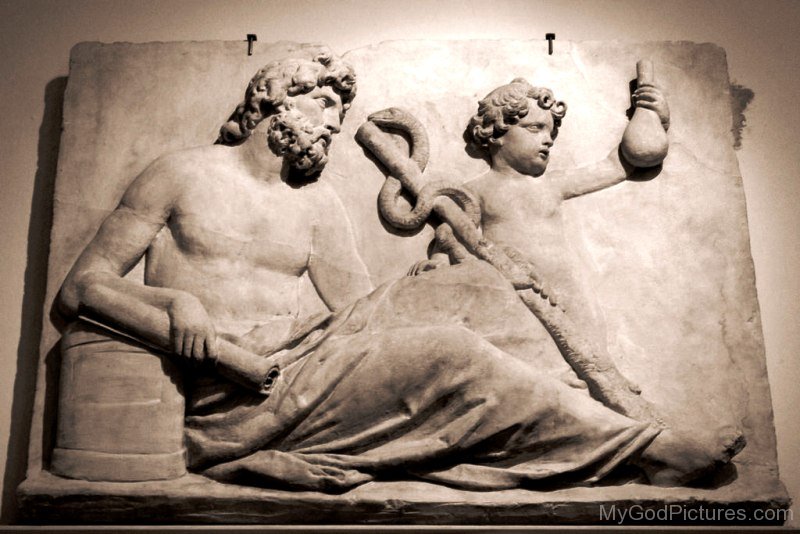On the eighth day of Elaphebolion, the Asklepieia (Ἀσκληπίεια) was held in honor of Asklēpiós, who was honored monthly on the eighth. The Asklepieia is linked to the Epidausia, celebrated six months later, as both were special days where those in the medical profession--as well as those seeking medical counsel--made sacrifices to Asklēpiós. Will you join us on the 7th of March, at 10 am EST?
In 242 BC, during the Mercenary War, the sanctuary at Epidaurus was granted immunity from war, and the Asklepieia Megala was established as a festival of athletic and musical competitions, held every four years, for a nine day period. Theater performances were also a huge part of the festival, and the famous theater of Epidaurus still stands today, one of the seven wonders of ancient Hellas.
The first of the festival days was spent preparing for the actual festival. The second day, religious exercises were undertaken. All temples and shrines were richly decorated and sacrifices were made to Apollon, Asklēpiós, Artemis, and Leto. Perhaps and the children of Asklēpiós--Hygieia (health, cleanliness, and sanitation), Iaso (recuperation from illness), Aceso (the healing process), Aglaea (beauty, splendor, glory, magnificence, and adornment), and Panakea (universal remedy)--also received sacrifice. Apollon received the first offering along with Asklēpiós: a cock, the fowl associated with Asklēpiós. They also received barley meal, wheat, and wine. Asklēpiós was then gifted a bull, a second bull was sacrificed to His male associates, and a cow to His female associates.
On the eve of the third day, a statue of Asklēpiós was driven through the precinct, and followed by torch-bearers and priests, who sung hymns to Him. The priests sang and spoke the praise of the Theos. There were vigils throughout the night, and during the daylight hours of the third day, there were feasts. The succeeding days were given up to athletic contests in the stadium, races, wrestling contests, singing contests and theater performances.
In 242 BC, during the Mercenary War, the sanctuary at Epidaurus was granted immunity from war, and the Asklepieia Megala was established as a festival of athletic and musical competitions, held every four years, for a nine day period. Theater performances were also a huge part of the festival, and the famous theater of Epidaurus still stands today, one of the seven wonders of ancient Hellas.
The first of the festival days was spent preparing for the actual festival. The second day, religious exercises were undertaken. All temples and shrines were richly decorated and sacrifices were made to Apollon, Asklēpiós, Artemis, and Leto. Perhaps and the children of Asklēpiós--Hygieia (health, cleanliness, and sanitation), Iaso (recuperation from illness), Aceso (the healing process), Aglaea (beauty, splendor, glory, magnificence, and adornment), and Panakea (universal remedy)--also received sacrifice. Apollon received the first offering along with Asklēpiós: a cock, the fowl associated with Asklēpiós. They also received barley meal, wheat, and wine. Asklēpiós was then gifted a bull, a second bull was sacrificed to His male associates, and a cow to His female associates.
On the eve of the third day, a statue of Asklēpiós was driven through the precinct, and followed by torch-bearers and priests, who sung hymns to Him. The priests sang and spoke the praise of the Theos. There were vigils throughout the night, and during the daylight hours of the third day, there were feasts. The succeeding days were given up to athletic contests in the stadium, races, wrestling contests, singing contests and theater performances.
The Asklepieia Megala was only held at Epidaurus; all other asklepieia--as well as at Epidausus the other three years--held only a small ceremony for the Theos. The festival did not include athletic games outside of the Asklepieia Megala, but there might have been a focus on singing, and there might have been large banquets, held after sacrifices were made to the Theos.
You can find the ritual here, and we really hope you will join us on the Elaion Facebook page for this one, too!


No comments:
Post a Comment